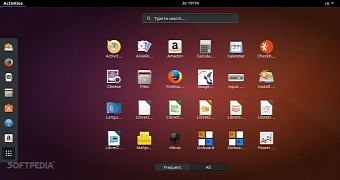Canonical's Will Cooke is today reporting on the latest or upcoming improvements that the Ubuntu Desktop and Snappy team plans to implement in the Ubuntu Linux operating system.
Probably the most important thing that the Ubuntu developers have worked on lately is a smooth and easy migration process from Unity 7 to GNOME Shell user interfaces when upgrading to the upcoming Ubuntu 17.10 (Artful Aardvark) operating system, due for release on October 19, 2017.
To help users have a smooth migration from Unity 7 to GNOME Shell, they recently reintroduced the GNOME-based Ubuntu session as default in Ubuntu 16.10 (Yakkety Yak), alongside the Wayland session, according to Will Cooke, who says that the original GNOME session is not installed on the desktop by default anymore.
GNOME Software to support classic Snaps, human-readable Snap names
On the Snappy side of things, Canonical's Snappy team, along with representatives of the Ubuntu MATE, GNOME Software, KDE, Elementary, Fedora and AppStream projects have been at a Snappy sprint in London to work on some upcoming improvements for desktop Snap users.
Among these improvements, we can mention that support for classic Snaps will be implemented in the GNOME Software graphical package manager, along with support for displaying more human-readable Snap names and the ability to fetch correct licensing information from the Snappy Store for Snap packages.
"We’ve done work to improve the desktop launcher helpers to make use of the new GNOME platform Snap. If you’re building GTK+ apps on [GNOME] 3.24 you can use the platform Snap to significantly reduce the size of your Snap (the Snap is called “gnome-3-24”)," says Will Cooke, Director, Ubuntu Desktop.
Work continues on the upcoming LivePatch integration for Ubuntu Desktop, and it now looks like the Update Manager utility is capable of displaying the current LivePatch status, as well as the fixes that are available for installation or those that have already been applied.
A prototyped of an API that fetches information about the latest CVEs via the LivePatch daemon was implemented as well. On the software side of things, the Orca screen reader and magnifier was updated to version 3.24, and the Chromium web browser is now available as 59.0.3071.109, 60.0.3112.32 Beta, and 61.0.3135.4 Dev.

 14 DAY TRIAL //
14 DAY TRIAL //